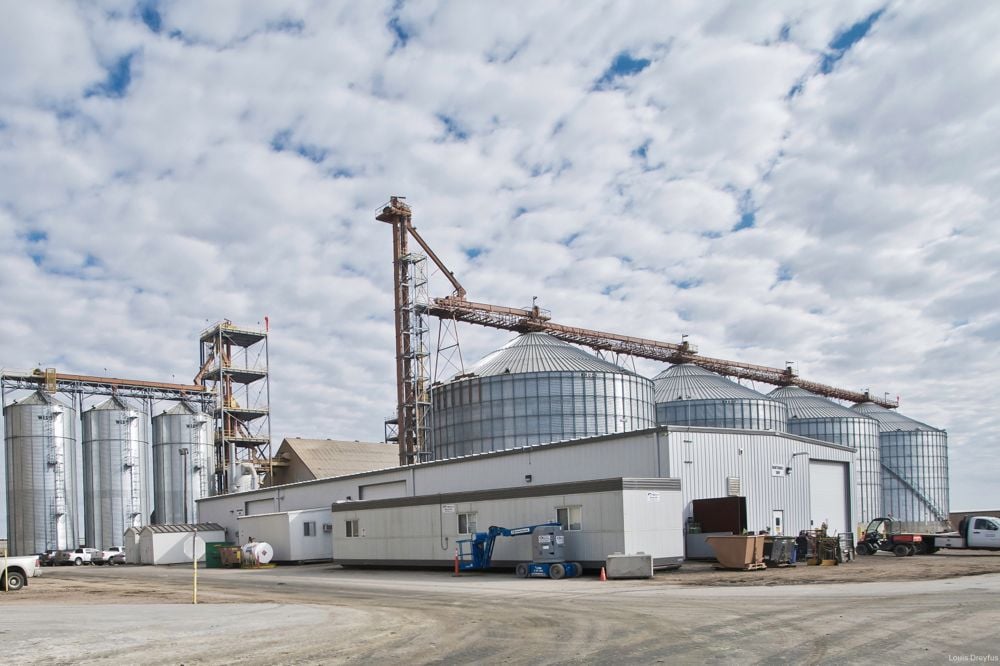A coalition of farm groups based in Saskatchewan has issued a 39-page document suggesting far-reaching changes to the Canadian Transportation Act, the federal legislation that regulates railway operations in the country.
The document, released in Regina earlier today, is endorsed by a broad coalition of farm groups including Saskatchewan Pulse Growers, the Saskatchewan Barley Development Commission, the Saskatchewan Wheat Development Commission and the Agricultural Producers Association of Saskatchewan.
It contains a total of nine recommendations, which according to the coalition are designed to foster rail competition, increase market transparency and ensure that producers have a stronger voice in Western Canada’s railway transportation system.
Read Also

Louis Dreyfus posts higher volumes, lower profits in first half
Agricultural commodity merchant Louis Dreyfus Company recorded a rise in first-half sales, supported by higher volumes shipped, but weaker prices for most crops pushed down profits, it said on Friday.
The document was submitted this morning by coalition members to the Canada Transportation Act review panel, which has been put in charge of reviewing the CTA and reporting back to Ottawa before the end of the year.
“The grain handling and transportation system has undergone substantial change, said APAS president Norm Hall, spokesperson for the coalition.
“Railways are centralizing their services and placing significant investments made by producers, short lines and producer car loading sites at risk.
“From the coalition’s perspective, if we are redesigning a transportation system that is clearly not working for producers, who is actively looking after producers’ interests?”
In a news release issued this morning, coalition members claim that failure in the grain transportation and handling systems cost western Canadian grain producers more than $3 billion in the 2013-14 crop year.
Those same producers stand to lose another $2 billion in the 2014-15 crop year unless significant changes are made to the CTA and the relationship between farmers, grain shippers and railway companies.
Among other things, the coalition’s submission recommends:
• The creation of a rail oversight group, which includes agricultural producer representation, to assess ongoing operations of the railways.
• Completion of a formal costing review and possible adjustments to the maximum revenue entitlement.
• Retention of the railway revenue entitlement, commonly known as revenue caps.
• New rules that ensure enhanced mandatory information reporting for the grain handling and transportation system.
• Improved mechanisms to resolve disputes over rail service.
• Enhanced provisions that encourage the use of running rights on Class 1 railway networks.
• Legislative changes that support small shipper innovation, diversification and investment in the railway network.
• Measures that ensure the unique needs of producer car shippers and short-line railways are being met.
• Changes that give the Canadian Transportation Agency more power to investigate and rule on railway decisions — including railway abandonment and producer car site delisting — that affect underserviced and unused rail lines in areas where other parties have expressed an interest.
“The bottom line is that farmers and the Saskatchewan economy suffered a substantial loss in 2013-14 and these producer income losses continue into 2014-15,” Hall says. “Major adjustments need to be made to ensure farmers are treated fairly in a transparent environment with long-term commitment. The coalition hopes that other organizations and individuals will respond to the call for submissions.”
Earlier this year, a federally appointed panel was put in charge of reviewing the Canadian Transportation Act.
The panel is expected to complete its preliminary round of consultations with grain producers, exporters and agricultural shippers within the next few weeks.
Murad Al Katib, one of six people appointed to the federal review panel, said preliminary consultations with a wide variety of agricultural stakeholders has already taken place.
The CTA review is billed as an “arm’s length” review process aimed at assessing federal rail and transportation regulations to ensure they are meeting industry needs and supporting economic growth.
The review process is headed by David Emerson, a former bank executive and parliamentarian whose four-year career as an MP and federal cabinet minister included stints as minister of industry, minister of international trade and minister of foreign affairs between 2004 and 2008.
The review will pay specific attention to transportation issues affecting the Canadian agriculture industry.
Members of the review panel have been asked to provide preliminary feedback to transportation minister Lisa Raitt’s office before the end of the year, based on discussions with agricultural stakeholders.
Hall said the Saskatchewan coalition is encouraging other organizations and individuals to submit comments to the panel before the Dec. 31 deadline.















